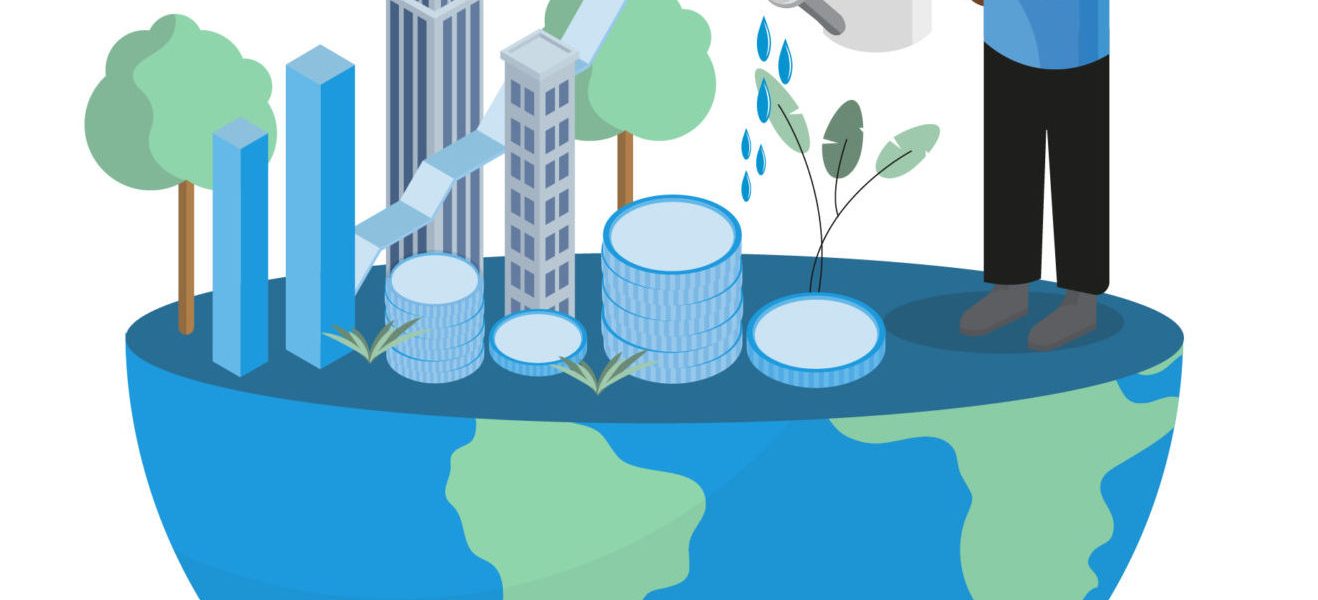Climate Nudges: Small Shifts, Big Impact – How to Harness Behavioural Science for a Greener Future
In the race to combat the ever-present effects of climate change, it’s the little things that count and behavioural economics is showing us how to achieve this through the use of subtle ‘nudges’. This innovative method does not restrict personal freedom and choice providing an alternative to regulation which has proved hard to maintain – as seen by the UK’s 5-year delay in phasing out petrol and diesel cars.
What is a Climate Nudge
A climate nudge is a behavioural intervention that encourages individuals or organisations to make environmentally friendly decisions without restricting their freedom of choice. These nudges apply behavioural economics principles to foster sustainable actions, leveraging subtle changes to influence behaviour to promote climate-friendly results. The methods utilised are typically very low-cost and non-coercive yet can cause significant impact.
What Do They Look Like in Action?
Looking into specific methods, a leading example is implementing greener default options. When default options on electricity bills are set to renewable energy, individuals are likelier to remain with this to avoid the hassle of switching back. According to sources, this technique was implemented in Switzerland and before the switch, the numbers choosing to have renewable power sources were at around 3% this rose to 80-90% of customers despite the slight price increase of 3-8% for consumers. Moreover, the choice to use renewable energy in Switzerland has remained stable according to the most recent study. This huge shift illustrates how effective nudges can be in altering consumer behaviour.
Another powerful nudge involves challenging social norms, motivating individuals to conform to a similar behaviour to their peers. According to ONS, In the UK 74% of surveyed adults aged 16 or over said they were worried about climate change. Many underestimate popular support for climate action, leading to inaction assuming their efforts won’t make a difference. ‘Norm nudging’ would assist in addressing this misconception and encourage individuals to engage in environmentally friendly practices, such as recycling or reducing energy consumption. Studies have found that providing high-energy-consuming households with descriptive normative information about the average home energy usage in their neighbourhood decreased energy consumption and this nudges effects continued to be strong 4 weeks after the initial intervention.
Accountability is a large issue in tackling climate change and commitment devices are powerful tools for encouraging sustainable behaviours. When people declare their intention to engage in activities such as reducing waste or increasing recycling—they create a sense of accountability that can significantly influence their actions. This social pressure enhances their commitment and cultivates a sense of responsibility towards the community. The visibility of these commitments can lead to a ripple effect, inspiring others to join in and fostering a collective movement towards sustainability. A big initiative in creating accountability and attempting to adapt social norms is Flygskam – a Swedish method translating to ‘flight shame’ that aims to reduce the amount of travel by plane. It began with the creation of an article by famous Swedish singer Staffan Lindberg signing to give up flying and successfully took off in Sweden with the number of passengers at Swedens 10 busiest airports falling by 8% in 2019. However, the long-term impact appears to have dwindled with statisticians estimating 2024 will have the most flights per annum ever having returned to regular travel rates since COVID-19.
The Limits of Nudging
According to a recent study, ‘limited cognition’ is the main behavioural barrier to sustainable energy consumption. The reluctance to embrace energy practices can stem from cognitive abilities that hinder rational decision-making processes among individuals. Many may not show interest in sustainability or delegate responsibilities related to energy to others due to their lack of understanding of the topic. This can undermine the effects of the nudge implemented since people have no ambition to change. Another study trialled the effect of closing information gaps on energy costs of appliances. This considered the impact of adding an energy label detailing estimated 10-year energy costs based on typical household usage and a questionnaire which personalised this information. The results suggested no impact on the efficiency of appliances purchased meaning the nudge had no impact due to limited cognition or lack of funds. The Vimes Boots theory could also be considered into why some did not buy the more efficient appliances despite comprehending the long-term benefits.
Although nudges can be helpful, in encouraging eco-behaviour, their ability to combat climate change is restricted by their effectiveness, limited scope and the influence of systemic factors. Compared to regulation, its impact has far less reach and some may question the ethics of it as nudges can blur the line between motivation and manipulation. Emphasising actions may also divert attention from conversations about shared accountability, which is crucial, for tackling the challenges posed by climate change.
Conclusion: The Power of These Small Changes
In conclusion, climate nudging offers a valuable tool for encouraging more sustainable behaviours and can play an important role in addressing climate change. By guiding individuals toward greener choices nudges help create momentum for broader societal change. While nudging alone may not solve the climate crisis, it can complement larger policy actions, technological innovations, and systemic shifts. When combined with these strong regulations and infrastructure improvements, climate nudges can empower individuals to contribute meaningfully to the global effort, making sustainable choices easier and more accessible for everyone.






